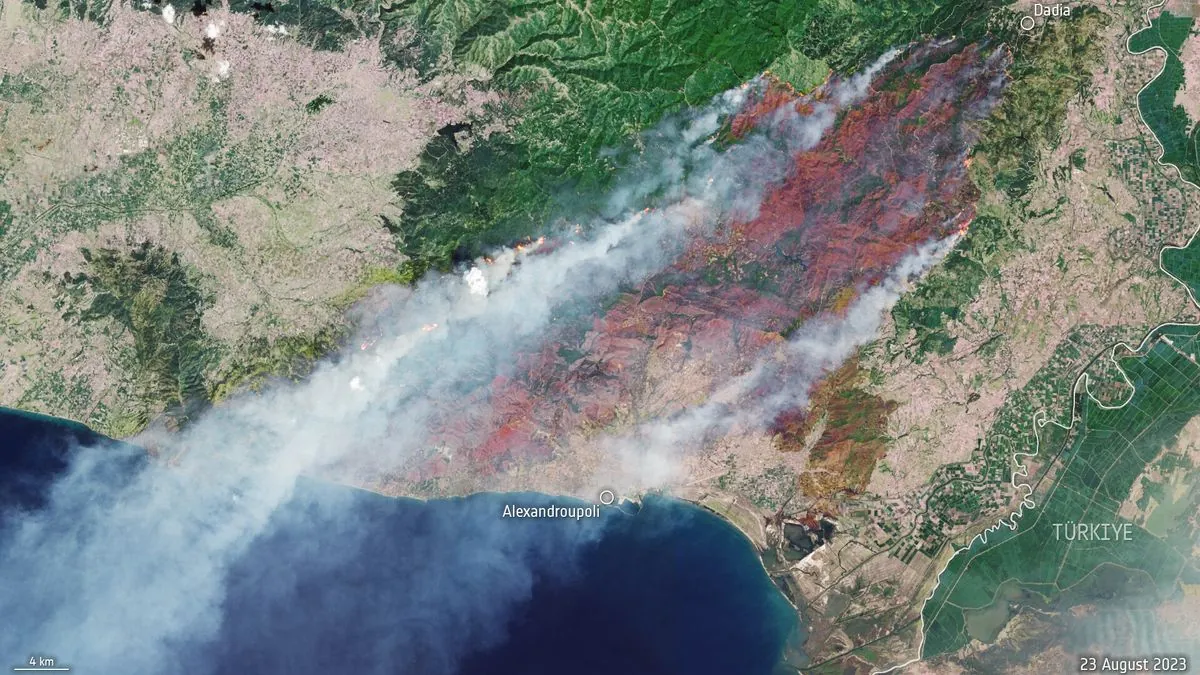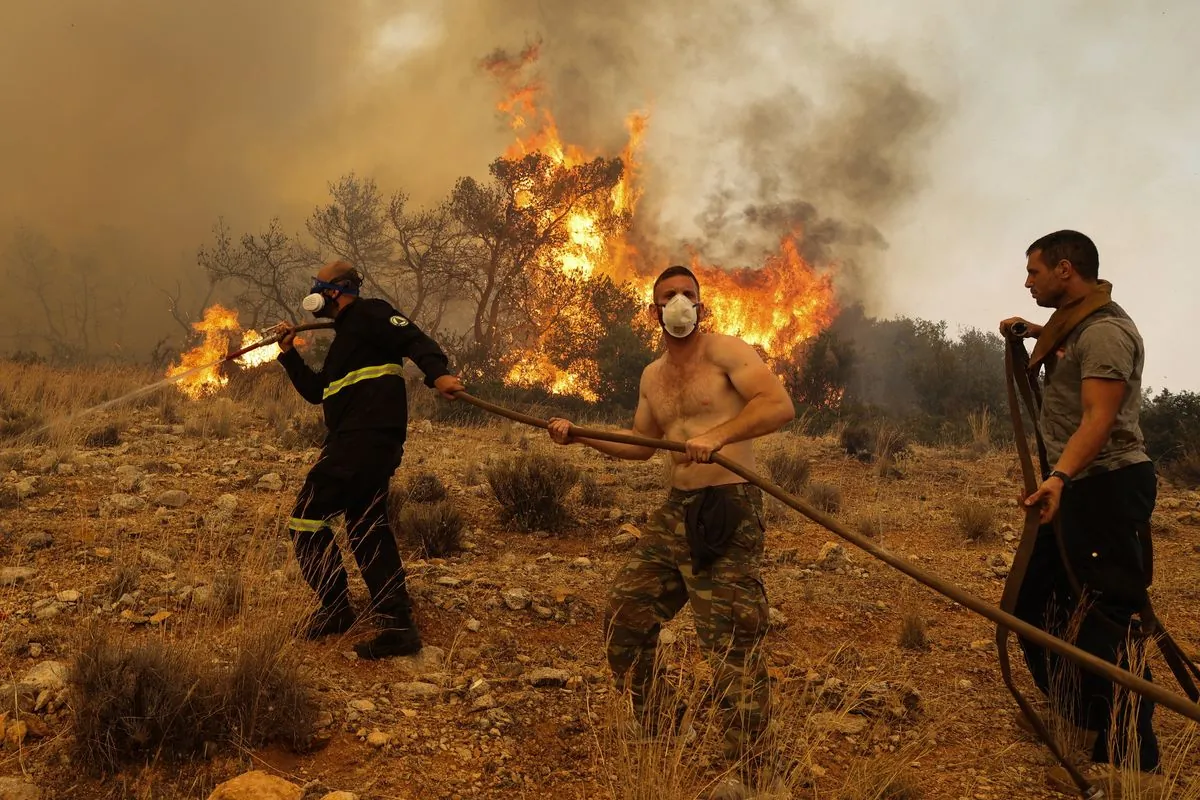Fatal Wildfire Near Xylokastro: Greece Battles Flames Amid Dry Conditions
A wildfire near Xylokastro, Greece, claimed two lives as firefighters battled the blaze. Strong winds and dry conditions fueled the fire, leading to village evacuations in the Peloponnese region.

In a recent incident that underscores Greece's ongoing struggle with wildfires, a blaze near Xylokastro in the Peloponnese region resulted in two fatalities. The fire, which erupted on September 29, 2024, prompted the evacuation of several villages and required extensive firefighting efforts.
Approximately 350 firefighters, supported by eight water-dropping aircraft, worked tirelessly to contain the flames. By the early hours of September 30, 2024, authorities reported that the fire was largely under control. The Greek fire service, established in 1930, demonstrated its crucial role in managing such emergencies.
The two individuals who lost their lives were believed to be local residents. Their disappearance was reported late Sunday, highlighting the dangers posed by rapidly spreading wildfires. Fortunately, no additional missing persons were reported, and there were no immediate indications of property damage in the affected area.

The wildfire's intensity was exacerbated by strong winds and extremely dry conditions resulting from a warm spring and hot summer. This combination of factors is typical in Greece's Mediterranean climate, which is characterized by hot, dry summers and mild winters. The Foehn wind effect, known to contribute to fire spread, may have played a role in this incident.
Greece's vulnerability to wildfires is a recurring challenge, particularly during the summer months. In the past few months alone, the country has faced over 4,500 wildfires, reflecting the scale of the issue. This situation is not unique to Greece, as other southern European countries grapple with similar challenges.
"We urge residents to remain vigilant and follow evacuation orders promptly. Our priority is ensuring public safety while we work to contain and extinguish the fire."
The Greek government has implemented various measures to address the wildfire threat. These include a fire danger prediction system, increased funding for firefighting equipment and personnel, and stricter penalties for arson and negligence. Additionally, Greece participates in mutual aid agreements with other European countries for firefighting assistance during severe wildfire seasons.
Climate change has been linked to the increasing frequency and intensity of wildfires in Mediterranean countries. This trend poses significant challenges for Greece's ecosystems, biodiversity, and tourism industry. The European Union's Copernicus Emergency Management Service provides valuable support through satellite imagery for wildfire monitoring.
As Greece continues to face this persistent threat, the incident near Xylokastro serves as a somber reminder of the importance of fire prevention, rapid response, and community preparedness in safeguarding lives and preserving the country's natural beauty.


































